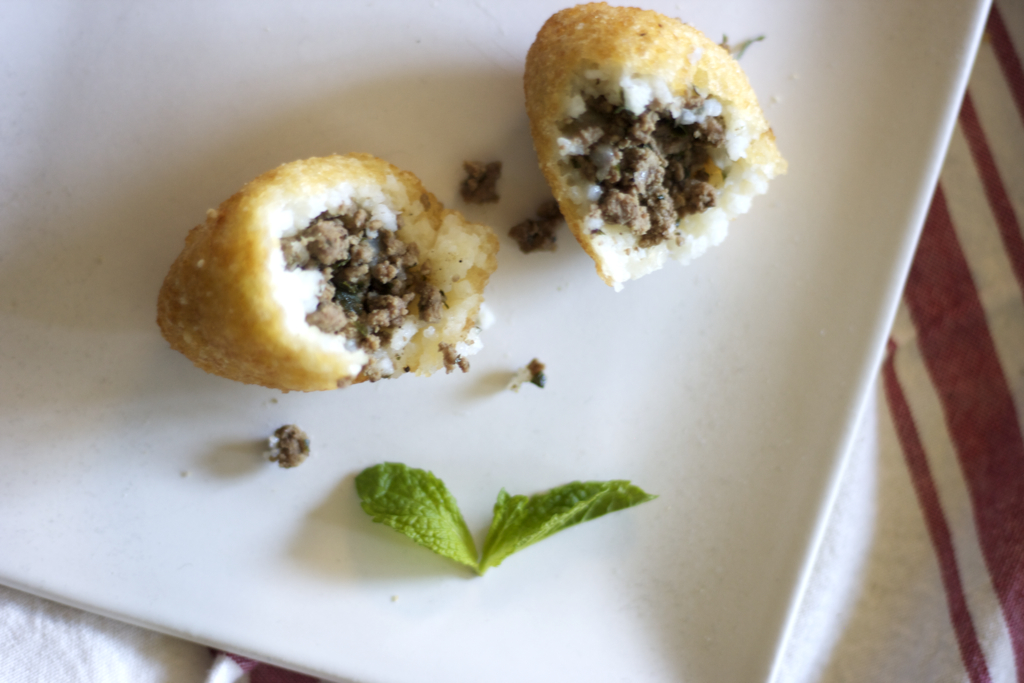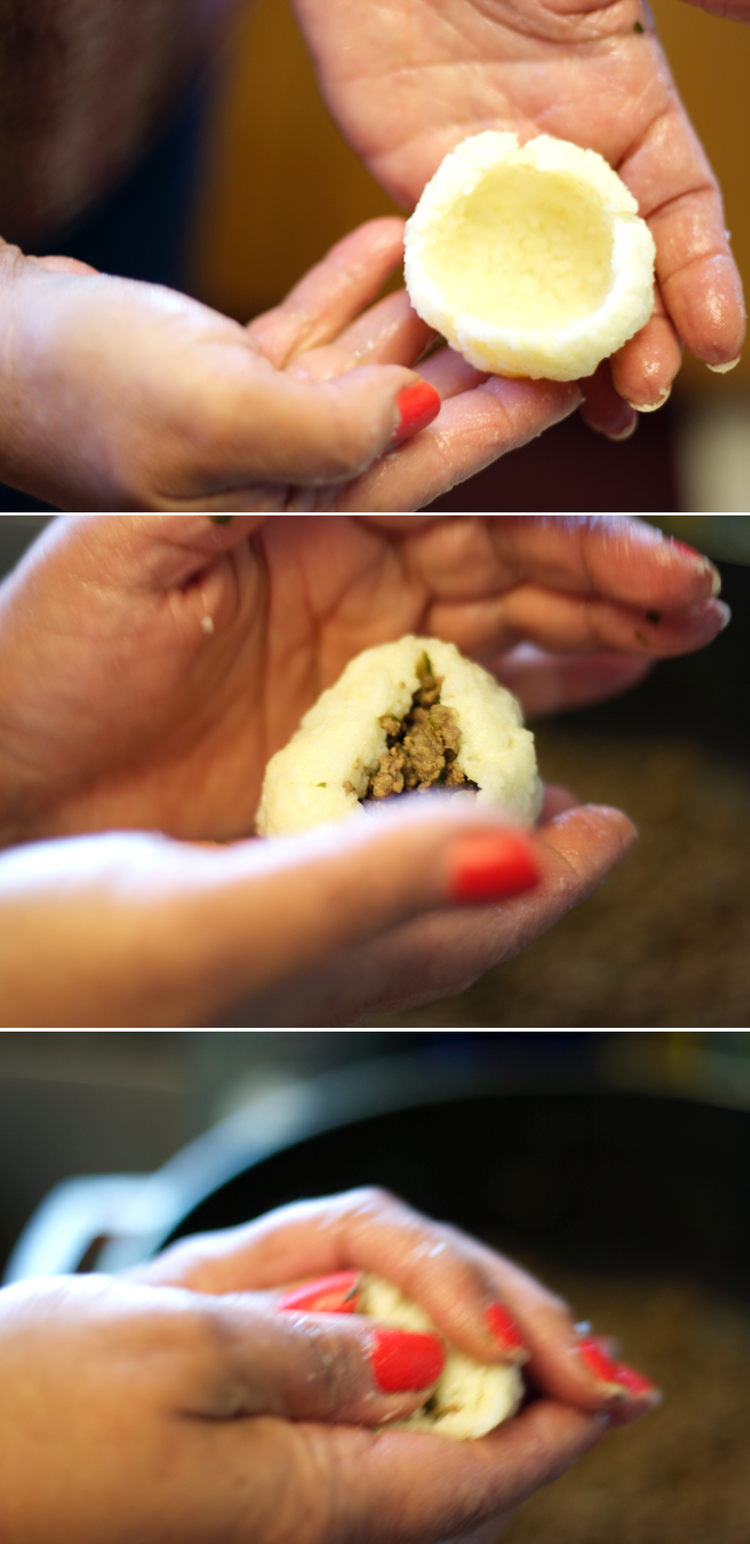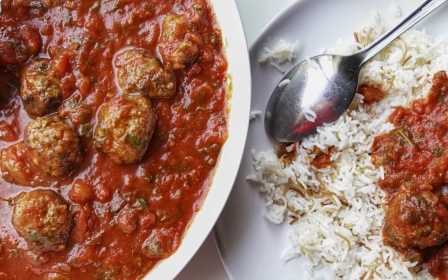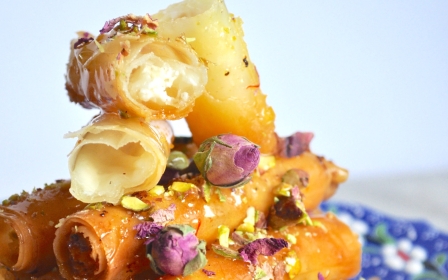How to make fried kibbeh from Iraq
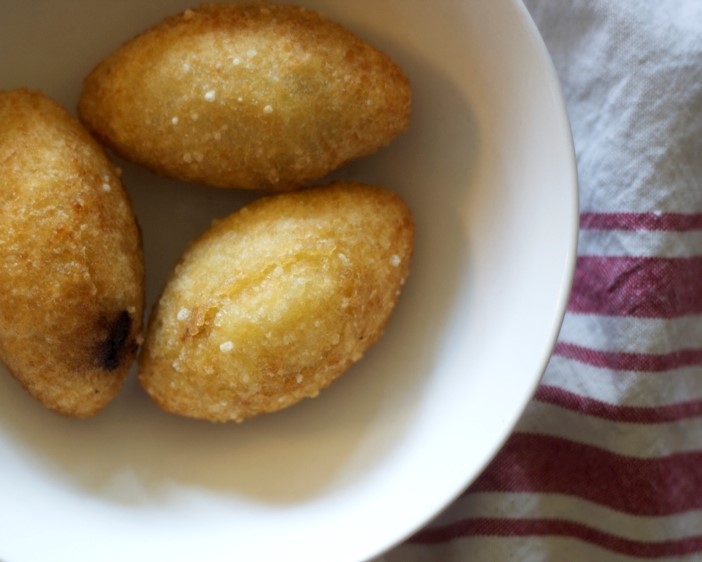
Kubba’t halab, to give its Arabic name, is an Iraqi speciality named in homage to Aleppo, which is also known as Halab. It is done in the spirit of competition and respect, as Syria is well known for its excellent kibbeh.
This particular kibbeh is shaped into eggs with a long grain rice dough, stuffed with qeema and then deep fried.
It can take a little bit of effort but is easy to make ahead, freeze and then cook if you happen to have an air fryer. Mum usually makes about five at a time, because we, her children, always need to eat them right away.
Recipe
Makes: 25-30
Preparation and frying time: 90 mins to 2 hours
1. Ingredients
- 400g (2 cups) long-grain white rice - don’t listen to anyone else, use only this rice!
- 900g (2 lbs) of ground meat, either beef or lamb
- 1 bunch of parsley
- 1 large onion
- 1 egg
- salt and pepper
- oil for frying
2. Method
Rice dough for the shell
- Soak the rice in cold water for an hour.
- Wash the rice with your hands, as if you are doing the laundry, to get the starch out of it. Rinse it to clean.
- Put the rice in a pot on the stove. Cover it with 3-4 inches (7.5cm - 10cm) of water. Add salt. Put it on a medium to high heat
- Important: You don’t want a rapid boil, you want to cook the rice slowly and let it absorb the water. Don’t shake the rice. Don't add oil. This is not like cooking regular rice.
- It will take about 10 mins for the rice to start to simmer. When it does, turn it down to a medium heat for about 15-20 mins or until it looks like the water has been absorbed.
- Again, treat the rice with care, so don’t stir it, don’t mix it. It needs to stay level.
- Carefully poke five little holes into the rice - use the handle end of a wooden spoon. This is to allow the remaining water at the bottom to steam up.
- Turn it down for another 15 mins on a low heat. This way the rice will be very soft.
- Turn off the heat, leave the pot covered and let it cool.
- When the rice has cooled off enough to handle, crack one egg into it. Egg whites alone are fine (my mum uses the whole egg).
- Take the mixture in your hands. Dip your hands in water to handle the dough, then knead it until it has a gummy texture and you can no longer see the individual rice grains. You want it to be slightly sticky but not so sticky that you can't work it.
- Don't use a machine mixer to knead the rice as it will make it too mushy. If the dough is too hot to handle then wear rubber gloves.
- Set the dough aside.
The qeema for the stuffing
- Start by sauteing the finely diced onion on a high heat.
- Then add the meat, salt and pepper. Let it cook for about 5 mins.
- Chop the parsley, lower the heat to medium, then add the parsley.
- Sautee until the liquid from the meat has been absorbed. This shouldn't take take very long: around 20-30 mins if you are cooking on medium.
- If there is excess fat, just tip the pan, move the qeema aside and pat dry with a napkin.
- Ensure the meat does not burn: keep stirring until it feels cooked and starts to brown.
Putting it all together
- Ensure you have the bowl of rice dough, the pot of qeema and some water for your hands nearby.
- Dip your hands in water and take some dough. Working the dough with your hands, make a ball about the size of a small egg.
- Make a well in the dough with your index finger. Then flatten out the sides of the well (see above). Try to make it about espresso cup size.
- Add about a tbsp or less of qeema with one hand, then close the ball with the other hand.
- Then cup the ball with your hands to make it into an egg shape, ensuring you keep your hands slightly wet.
- Make as many as you want before you start frying.
- Deep fry until they are golden, ensuring that they are covered in oil. Fry as many as you want at a time, without crowding the pot.
- Let them dry on a cooling rack, then serve
You can follow Sara on her blog 'Add a Little Lemon' or on her Instagram @addalittlelemon
Middle East Eye propose une couverture et une analyse indépendantes et incomparables du Moyen-Orient, de l’Afrique du Nord et d’autres régions du monde. Pour en savoir plus sur la reprise de ce contenu et les frais qui s’appliquent, veuillez remplir ce formulaire [en anglais]. Pour en savoir plus sur MEE, cliquez ici [en anglais].


